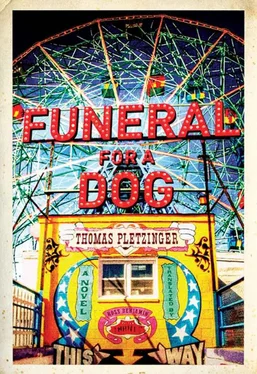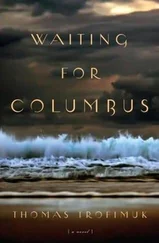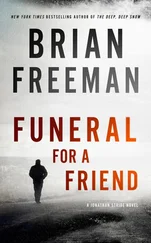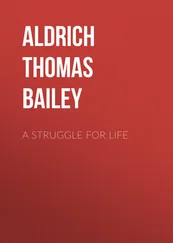San Mamete 13:28
In the middle of the lake the hoarse horn. We’re approaching San Mamete, the old plastic seats are shining in the sun and blinding me (life preservers and turned-off strings of lights). The captain throttles the motor and announces the old village, then he steers the ferry to the pier in back of Hotel Stella D’Italia (the bill in my bag). No one disembarks. The hotel guests on the terrace raise wine glasses to us, a few tourists board, two Americans, a senior hiking group, thermal shirts and blouses, the pale colors and empty mineral water cases in back of the houses (the inhabited side of the world is waiting for me). I turn back and can no longer make out Svensson’s house. Ceresio passes the point where we just laid Lua to rest, as if nothing happened (on larger ships you don’t feel the waves). Svensson sank his past, Kiki knows his secrets, Felix was scattered here (Samy is wearing a bright orange life vest). I wonder what death does to those who remain. Some want to forget, others inhabit the ruins. I think of Elisabeth’s scar and her bloody-bitten lips as she told me about the child’s death, about his gravestone and her husband (the fine cut on my lip has healed). Elisabeth and Tuuli are not similar, not their appearance, not their pragmatism, not their breasts, not their lips (golden pins for Tuuli’s hair, Elisabeth’s red, maybe copper). Elisabeth doesn’t want to forget, she doesn’t want to conceal anything, she doesn’t want to consist of only memory. The hotel guests take photos of the few tourists, the few tourists take photos of the hotel guests. I’ve started the return journey into my life. I wonder what Elisabeth will say about all this.
Oria 13:35
In Oria the same ritual: the foghorn and its echo off the backs of the houses, this time a church directly on the water, a cemetery with urn compartments, in the church garden a fisherman. Old men in undershirts on plastic chairs, their feet in the water, cigarettes in their fingers (I don’t smoke). As we dock on the pier, I notice a poster in the window of a dilapidated house:
Vendesi!
031 869 767
Telefono e Fax
and wonder whether I could pay the price for a life on the lake. But I admonish myself: I’m on the way back into the existence of an abortive ethnologist (real estate in Oria is not what I should be thinking about). Elisabeth’s intern wanted to know whether ethnology was getting in my way. On the foredeck of Ceresio I wonder what I’ve actually been doing during the four days at Svensson’s house on the lake. I didn’t maintain distance, I should have answered the intern, I got closer to the ethnos. From my dissertation: “Ultimately the ethnologist always remains himself and thus a stranger, every ethnography remains subjective and more or less empathic, every image is selected and every word invented. It is always his own experience that the ethnologist brings with him: he himself is the object of every investigation, he is at once ethnographer of himself and recorder.” And so on. I’ve stolen and kissed, I remember Geertz: “There are enormous difficulties in such an enterprise, methodological pitfalls to make a Freudian quake and some moral perplexities as well.” In Oria more tourists board the ferry than at all the previous stations, the plastic seats around me fill up, a French couple wearing Breitling caps sits down in front of me and takes pictures with a digital camera. I’ve observed and participated, now I’m departing (the ethnologist is leaving the group under investigation). When Ceresio casts off again, the children on the pier wave, they jump into the water behind us (they’re swimming in unknown memory).
Gandria Confine 13:40
We cross the Swiss border, the flags flutter, the stern of the boat full of seniors and families, hiking backpacks and ice cream cones, laughter and cameras. On the slope above us snakes the road Tuuli must have driven down too fast a few years ago. The border: a few hundred meters of underbrush and debris on a steep slope, mossy concrete buildings and moored boats of the Guardia di Finanza (no security check). In the enclosed part of the boat a Swiss woman is selling drinks, I buy a can of Diet Coke. On the red fake leather seats there are still a few empty spots, with the notebook on my knees I record: Writing by itself can’t give meaning to one’s experience. Writing is not true the way a can of Coke is true (my belch covered by my hand). When one compares one’s life with what has been written, there remains a mere residue of similarity, not much. Dirk Svensson files things away, Daniel Mandelkern considers his possibilities, our words don’t halt time (secretaries of disappearing).
Gandria 13:45
In Gandria boxes of empty bottles and shabby paper garlands over a wilted pergola (Ristorante Milago, Ristorante Antico, Ristorante Roccabella). Lugano is only a few stations away, Monte San Salvatore is directly in front of us (postcard stands, balloons, street musicians). This morning Ceresio dropped off the tourists on the way here. They’ve looked around and now want to be taken away again (in this they’re no different than I). The midday sun vertical over the water, even in the shade it’s very hot. Tuuli and Kiki will be sitting under the oleander and waiting for Svensson, Samy, and his freshly caught fish. (Tuuli will be smoking my cigarettes.) Svensson and I addressed each other by our last names, Lua has reached the bottom of the lake (take care, Mandelkern!). I will disembark in Lugano. On the pier of Gandria a boy, maybe three years old, is holding two balloons on red ribbons in his hands. When his mother tries to tie the red balloon to his wrist, the child is distracted for a brief moment: the other, green balloon slips out of his fingers and blows away over the tiled roofs of the village (barrel organ music). Ceresio takes leave of the village with a coughing horn and heads for Lugano. On the battered fake leather seats, between Americans and French people and Germans, I decide to switch to “you”:
I’m not going to work for you anymore, Elisabeth.
I’m tired of newspaper pages, Elisabeth! Our life is not a brief article; it’s a spiral, not a line. I’ve been taking notes for four days. I’m an ethnologist, Elisabeth, I’m not a journalist (I’ve observed and participated). I’m tired of editorial meetings, Elisabeth, I want a wife without word limits!
Castagnola 13:58
On the dock the cameras click for the young stoners and cliff divers. In front of the expensive villas on the slope cypresses stand in a row, behind them loiter oleanders, magnolias, and ginkgos, flights of steps and piano rooms. Here almost no one gets on or off, we’re approaching the city (the Frenchwoman in front of me points her finger: c’est Castagnola, il y a beaucoup de riches ). The teenagers plunge off the cliffs into the air, the passengers applaud. What I’ve learned: that I don’t have to make such a big deal out of everything. That I misjudged Svensson. That I don’t smoke. That time passes and doesn’t come back. That I’ve found words for myself that I can’t muster when I’m sitting opposite you (your green eyes). That it’s not about 3,000 words. That I want to be understood by you. That I’m a back and forth, an either/or, a perhaps. That I will finally get to the bottom of myself. That I want to stay with you, Elisabeth. That I’m not afraid of children, Elisabeth. That I can decide when I have to (I can commit myself to things). That I miss your body, Elisabeth, that my body misses you.
Paradiso 14:08
Ceresio crosses the Gulf of Lugano, on the right the large hotels and yacht harbors, promenades and apartment buildings, the Hotel Eden and its over-the-top fountain. In Paradiso I disembark because Paradiso is an appropriate place to disembark. I buy another postcard and ask the salesman about the Hotel Lido Seegarten (image: Porlezza, 2001). On the other end of the city. This time I walk, past construction sites and gravelly lakeside paths, past dredges and rusty pedal boats. A few children are playing with empty Coke cans and ask for change for the binoculars. I stroll past Louis Vuitton, McDonald’s, and H&M posters, past the Piazza della Riforma, past the lindens and benches of the Riva Albertolli, past tennis courts and a Migros supermarket. Then I’m standing in front of the Hotel Lido Seegarten (back in the world).
Читать дальше












